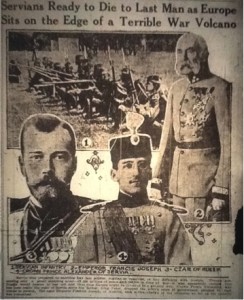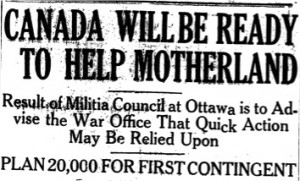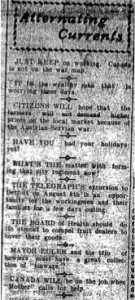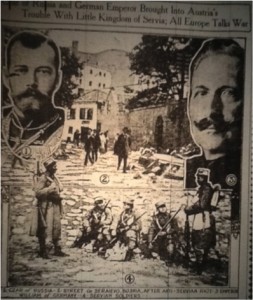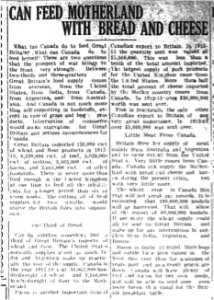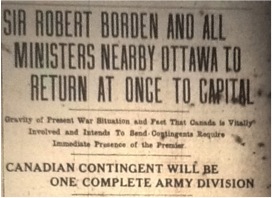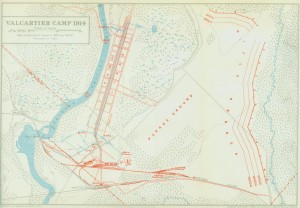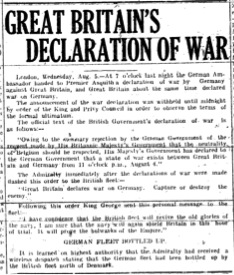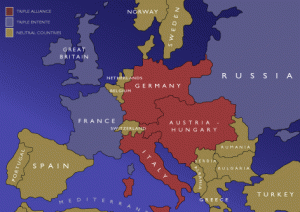By 30 July, the Austrian army had advanced almost twenty miles (roughly 32 kilometers) into Servia, and was making its way to Belgrade, the capital city of Servia. Artillery battles were underway between the two forces. At this point, the hope that mediation between Austria and Servia would prevent an Austro-Serbian war was gone.
It was evident that the war between Austria and Servia would continue, although it was not known for how long. Delegates turned their attention to Germany, waiting for her decision on whether or not she would enter the war, or guide Austria towards peace. The gravest fear was that all of Europe would be pulled into a general war. Internationally, it was known that the full mobilization of Germany or Russia would cause a ripple effect through Europe. If Germany came to the aid of Austria, then France would help her Russian ally. Next, Italy would provide assistance to Germany and Austria because of their Triple Alliance. Great Britain would then be forced to join the conflict, as she was the third member of the Triple Entente, her alliance with Russia and France. This would result in a war that involved the six most powerful nations in Europe.
(“Serbian Troops Along Danube Put up Stubborn Defence Against Invaders,” Berlin Daily Telegraph, 29 July 1914; “The European War Cloud,” Berlin Daily Telegraph, 31 July 1914; Photo Origin: London Free Press, 28 July 1914.)
